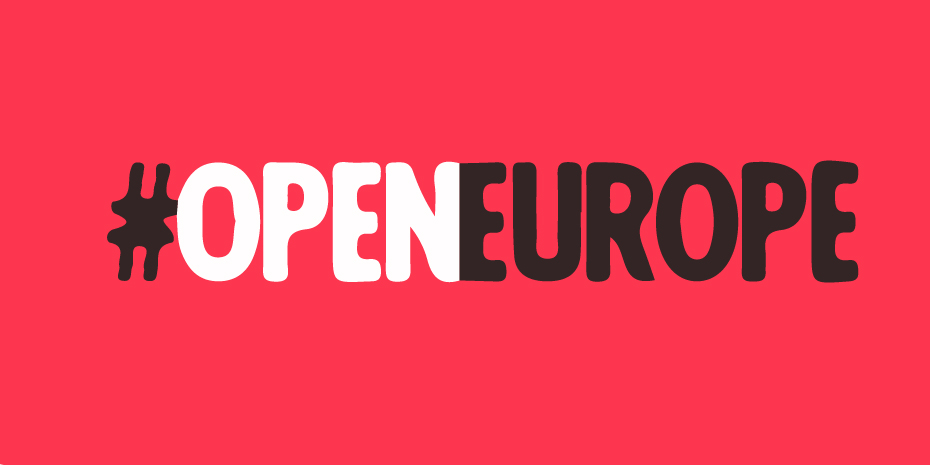Dr Françoise Sivignon is President of Médecins du Monde France. Janice Hughes is President of Doctors of the World UK. Both organisations are working together in Calais to meet the health needs of vulnerable migrants trapped there.
The inability of the European Union to agree a meaningful response to the current migrant crisis is not only disgraceful, it risks defining the Union’s legacy as a spectacular failure.
After the Second World War, Europeans joined hands to build bridges, working together to create societies in which fundamental rights and shared values would be cornerstones.
And yet today thousands are drowning within sight of our shores and many more have fallen ill or injured making perilous journeys to and across the Continent only to be met with violence or abuse.
The fractured, broken approach to settling asylum claims between European states, and anti-immigrant hysteria, only serve to resurface long-since healed divisions in Europe.
Never has the need for Europe to take concerted political action been greater.
In these extraordinary times, extraordinary measures are needed, like suspending Europe’s ‘Dublin regulation’ which requires an asylum seeker to claim asylum at the first European country they enter.
In some parts of Europe, like Hungary, borders are effectively being closed as razor wire fences are built in violation of international law. Macedonia has declared a state of emergency.
The migrant crisis could have been foreseen and common, EU-wide plans based on humanity and solidarity drawn up. Instead, states have squabbled over quotas for refugee resettlement schemes and pandered to a perceived need to placate anti-immigrant sentiment. Short-term, short-sighted populist decision-making by politicians is rarely a good way to make sound public policy.
The Middle East is wracked with turmoil and suffering. The four countries neighbouring Syria host more than four million refugees. To our collective shame, other situations of desperate poverty or diabolical dictatorships have been left to fester, driving innocent people in search of protection and a better life.
Nowhere is Europe’s failure more apparent than in the Calais camps, crucibles of desperation and suffering in the heart of Europe. It is the epitome of the failure to see the need for concerted action in all Europe for which refugees and migrants are paying with their lives.
Doctors of the World has been working with vulnerable migrants in Europe for many years, providing them with essential medical care while advocating for their right to health. We are present at every stage of their journey, from conflict zones to Greece and in Calais.
Those who make it to Calais are trapped in squalid living conditions on a disused refuse tip. Outbreaks of illness caused by these terrible living conditions are commonplace; trauma exacerbates people’s fragile mental health. Adding to this are the injuries and anguish caused by regular violence from police and people smugglers. And yet, as the only humanitarian medical organisation in Calais, it falls to our volunteers to pick up the pieces of Europe’s broken asylum system.
This situation would not be accepted in any other refugee crisis in any other part of the world, where internationally agreed standards for the provision of aid and protection are applied.
The French and British authorities offer only misguided help, focused almost entirely on security measures, which fails to address root causes and only intensifies the rejection and dehumanisation of vulnerable migrants.
Bridges, not disproportionate and dangerous security measures are the answer.
Seeking asylum is not a crime. Migrants are not a security risk. They have not come to occupy Europe or to get medical care. They are simply, desperately, seeking a dignified life. In fact, migration drives economic prosperity and social and cultural diversity. It is an asset not a threat.
Reception and protection mechanisms which are commensurate with the scale of the problem must be put in place, and quickly. Europe must assure asylum seekers safe passage via effectively implemented ‘legal corridors’. Resettlement schemes must be extended and every effort taken to reunite separated families, especially in the case of the unaccompanied children we see in places like Calais. They have particular assistance and protection needs, which must be met since they are always at risk of violence and exploitation.
Europe has a long, laudable history of seeking to end chronic poverty globally and in meeting humanitarian needs during armed conflicts and after natural disasters. Calais should not dilute Europe’s reputation and track record for principled humanitarian action.
The Governments of Europe need to act with courage. They must stop piling migrants in to squalid camps and detention centres. They must lead with the principles and values that define the common European endeavour: humanity, dignity and respect.
Calais could be the bridge back to the Europe we stand for – open, hospitable and healthy.


